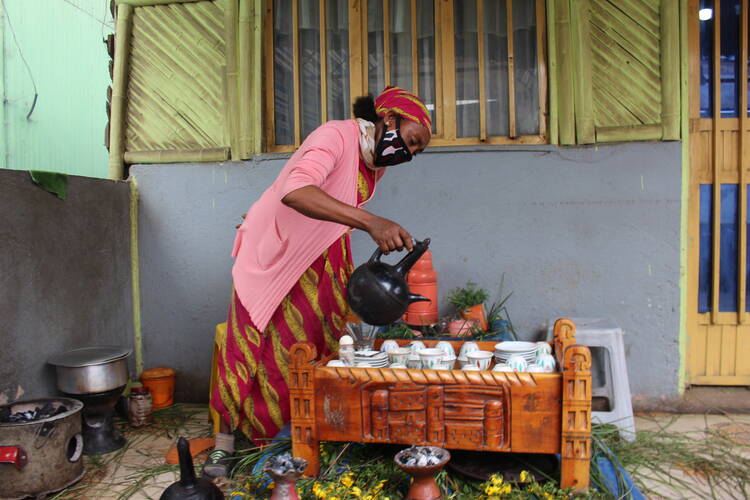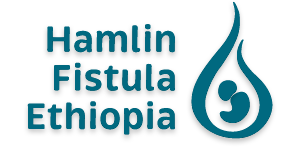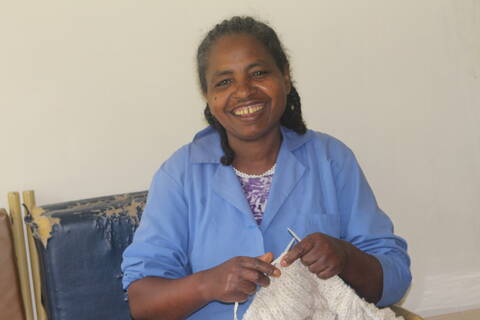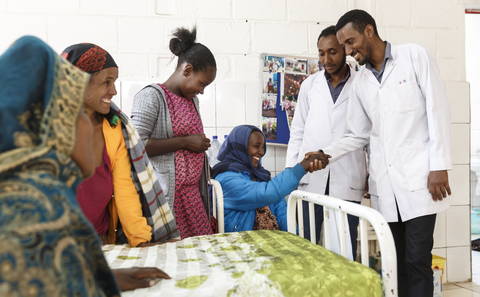Fistula survivors build their future
Surgery can give women with fistula a new chance at a dignified life. For many women, however, it is difficult to find their way back into social life even after a successful operation. This is especially true for women who have been marginalised, rejected and living in poverty for several years due to their obstetric injury. At the Desta Mender Rehabilitation Centre, women are not only supported in their physical recovery - through training and vocational courses, they are also enabled to live in a dignified and financially self-sustainable manner in the future.
Video: Ania Gruca
Our goal
Women with obstetric trauma are empowered and able to live financially self-sustaining lives.
Women affected by obstetric fistula often live on the margins of society. Surgery ends their physical suffering, but many fistula survivors cannot easily return to their "old" lives: Rejected by husbands and families and psychologically scarred by the birth injury, they often remain affected by existential poverty.
Our project supports the reintegration of fistula survivors into society by promoting their physical and psychological recovery and autonomy.
What we do
The project works on multiple levels to empower women while instigating change in society. Therefore:
We enable former fistula patients to participate in a vocational training programme so that they can build a dignified and financially independent life.
We accompany fistula survivors in their physical and psychological recovery.
We talk to decision-makers and family members to raise awareness about the situation of people with special needs and to create better conditions for income-generating activities.
What we want to achieve
At the Desta Mender Rehabilitation Centre, the affected women regain their self-esteem and self-confidence. Physically and psychologically healed, they are given the best conditions for a new, independent and self-determined life.
Fistula survivors take an active part in social life again, both at home and in their community and society.
The environment of the fistula survivors actively involves them and is open to them.
The women are empowered to lead a dignified and financially independent life.

At Desta Mender, the women can choose from various vocational training programmes, for example pottery or growing vegetables. The goal is for the women to be empowered to start their own businesses after the training. Photo: Hamlin Fistula Ethiopia
Sustainability
The fistula survivors who are able to complete training at the Desta Mender Rehabilitation Centre have the basic skills to set up their own business and live financially independently in the long term. With their new services, for example chicken rearing or food processing, they bring needed services and products to their communities. They can pass on their knowledge within the family or the community.
Our work has convinced you? Then support Women's Hope International's efforts to sustainably improve maternal health today! Thank you very much!
Cover picture: Barikti Tolda Adhano, pottery teacher in Desta Mender with a patient, Image: Ania Gruca
Overview:
Country:
Ethiopia
Period:
1.10.2020 - 31.01.2025
Local partner:
Hamlin Fistula Ethiopia
Target groups:
Girls and women with birth injuries, family members, key people in communities, and local authorities.
Beneficiary fistula survivors:
Approx. 385 women annually who complete training.
Project location: Weregenu, Ethiopia
Local partner
Hamlin Fistula Ethiopia was founded in 1974 by Dr. Catherine Hamlin with the goal of eradicating obstetric fistula.
Programme Manager
Programme Officer
3 Facts about obstetric fistula
1) Approximately 500,000 women worldwide suffer from obstetric fistula.
2) About 50% of those affected are teenagers.
3) Fistula surgery has a success rate of 80-90%.






